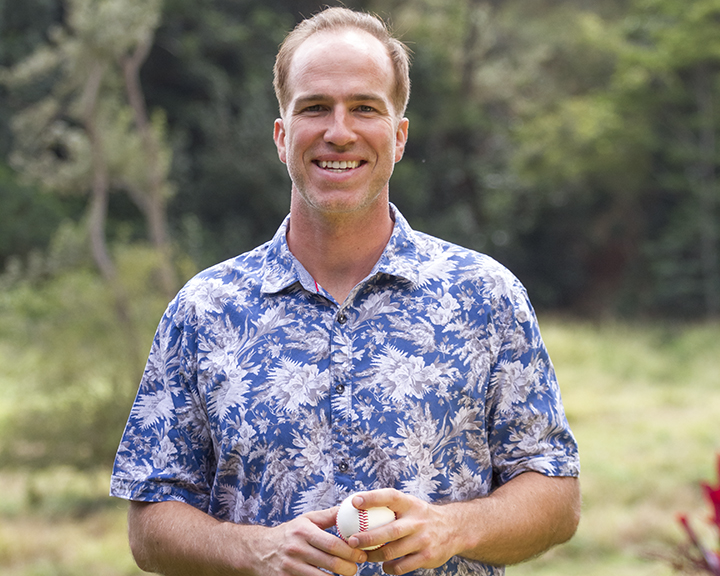By Benjahmin Koenigsberg

Eating more nutrient-rich foods, such as this raw zucchini noodles with semi-raw organic tomato and basil sauce, gives us a chance to recalibrate, and also stimulates cravings for a diversity of nutrient-rich foods.
“The most important thing to remember about food labels is that you should avoid foods that have labels” — Dr. Joel Fuhrman
Micronutrients are what we know as vitamins and minerals. I am passionate about micronutrients because by incorporating more of them into my diet, I am losing fat, feeling energized and experiencing dramatically less cravings for processed foods that once controlled my life. Focusing on micronutrients for weight loss instead of calorie counting is a relatively new concept for me and feels more sustainable.
Micronutrients get inside the cells, and are largely responsible for many of our bodies’ functions, like immunity, growth and repair. There are lots and lots of vitamins and minerals in existence in foods, and new ones are still being discovered. Some of the most common are vitamin A, C and E. Some common minerals are iron and sodium. Vitamins and minerals have an influence on how our genes express themselves and how our cells behave.
In his book “Eat to Live,” Dr. Joel Fuhrman recommends focusing on eating more nutrient-dense food for health and weight loss. Nutrient density is a reference to the ratio of nutrients to calories a food has. In studies that compare the amount of more than 20 different nutrients in the same portion of common foods, green vegetables like kale, chard and broccoli rank the highest. It doesn’t take a science degree to know that 500 calories of cabbage has more nutritional value than 500 calories of French fries. Nutrient diversity is also important, which is why we must eat a variety of nutrient-dense foods to ensure that our bodies are getting all the components they need to function optimally.
Looking back at my experiences, the hunger and cravings I felt controlled my life in many ways, was not coming from my stomach as I had thought, but from my cells. The mini organs within each cell that perform all the biological functions of my body, organelles as they’re called, depend upon a steady influx of different vitamins and minerals. Eating foods in their whole state, raw or close to raw, gives the body the micro nutrients in the proportions nature intended them to be eaten.
When we mill grain into a flour or remove the oil from olives, for example, we speed up the way they are absorbed and used by the body. A bowl of whole oats and bananas, due to its intact fiber and complexity, it digests at a rate suitable for our bodies to use steadily. In contrast, a banana muffin, for example, in addition to the added sugar, it has been refined and is less complex, unloading its digestible components in a relatively short time, “spiking” our system. The body can’t use all this fuel so quickly, and triggers fat production to “save” it for later use. This process artificiality boosts our energy at first, but shortly after, leaves us feeling depleted.
When we synthesize plants to extract certain vitamins and minerals to use as supplements, we also miss the benefit of eating the whole nutrient-rich food intact, getting all the aspects working in synergy with one another for maximum digestion and absorption.
The word appestat is a combination of the words appetite and thermostat. It refers to a built-in biological feedback loop mechanism, like a thermostat, that regulates feelings of hunger and satiation. The dangers of refined foods, salt and other additives, is that they mess with our internal appestat and stimulate our brains and taste buds to want more, without actually giving our body sufficient components required for repair and regeneration. This is the viscous cycle of food addiction, eating more refined foods in attempts to fuel up, but only depleting our bodies’ reserves further.
 Eating more nutrient-dense foods, in their whole form, gives our appestat a chance to recalibrate and to stimulate cravings for a diversity of nutrient-rich foods that keep us feeling full and deeply nourished. I put leafy greens into fruit smoothies to mask their bitterness. Lemon juice and ground pepper makes a delicious topping for steamed greens and vegetables. Fruit makes for a convenient breakfast, snack or pureed for salad dressings.
Eating more nutrient-dense foods, in their whole form, gives our appestat a chance to recalibrate and to stimulate cravings for a diversity of nutrient-rich foods that keep us feeling full and deeply nourished. I put leafy greens into fruit smoothies to mask their bitterness. Lemon juice and ground pepper makes a delicious topping for steamed greens and vegetables. Fruit makes for a convenient breakfast, snack or pureed for salad dressings.
Adopting a more nutrient-rich diet will support you in feeling nourished, fit and healthy!
- Benjahmin Koenigsberg is a vegan licensed massage therapist and mindset coach. You can schedule a therapeutic massage with Benjahmin through Kauai Deep Tissue, kauaideeptissue.net or 631 1854.
Discover more from ForKauaiOnline
Subscribe to get the latest posts to your email.





Leave a Reply